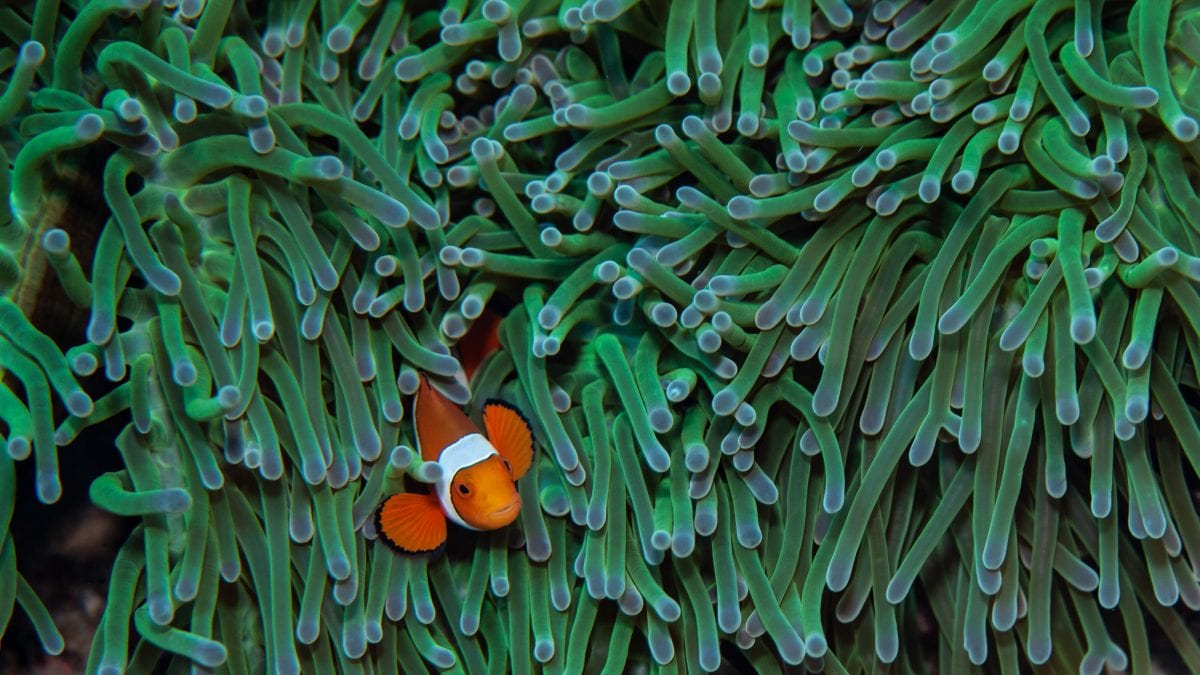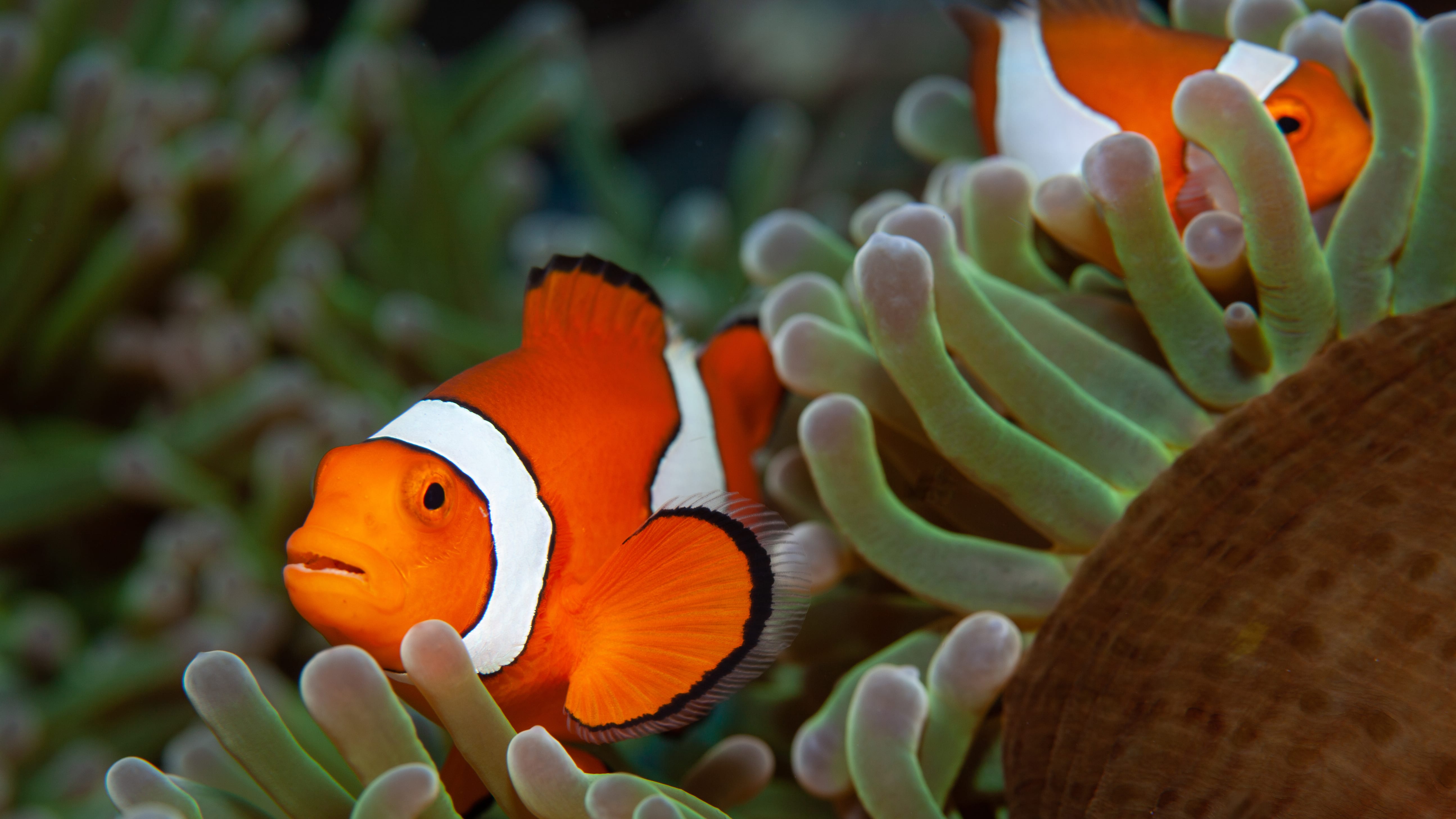Clownfish can’t adapt to rapid environmental changes
 Clownfish on their anemone in the lagoon around Kimbe Island in Papua New Guinea. (Photo by Simon Thorrold, Woods Hole Oceanographic Institution)
Clownfish on their anemone in the lagoon around Kimbe Island in Papua New Guinea. (Photo by Simon Thorrold, Woods Hole Oceanographic Institution) November 26, 2019
The beloved anemone fish popularized by the movies “Finding Nemo” and “Finding Dory” don’t have the genetic capacity to adapt to rapid changes in their environment, according to a new study by France’s National Centre for Scientific Research (CNRS), Woods Hole Oceanographic Institution (WHOI) and colleagues. Their findings published Nov. 27, 2019, in the journal Ecology Letters.
An international team of researchers monitored clownfish in the lagoons of Kimbe Bay—a biodiversity hot spot in Papua New Guinea—for more than a decade. Using genetic analysis of the population’s DNA, the researchers were able to calculate their potential to adapt to habitat changes and renew their population. They found that big families of clownfish that extended over many generations were linked to high-quality habitats, rather than to shared genes.
“The findings reported here were made possible by a huge sampling and DNA sequencing effort that had not been attempted for any marine species before,” says WHOI biologist Simon Thorrold, a coauthor of the paper. “The biggest surprise to us was also the most troubling: conservation efforts cannot rely on genetic adaptation to protect clownfish from the effects of climate change. It seems that Nemo won’t be able to save himself.”
The quality of the anemone that provides a home to clownfish contributes significantly—on average 50 percent—to its ability to survive and renew its population. If high-quality anemones remain healthy, the clownfish population will persist. However, if the anemones and coral reefs they call home are impacted by a warming climate, the clownfish are in trouble.
"Nemo is thus at the mercy of a habitat that is degrading more and more every year,” says Benoit Pujol, an evolutionary geneticist at CNRS. "To expect a clownfish to genetically adapt at a pace which would allow it to persist in the lagoons would be unreasonable, and thus the ability of these fish to remain in the lagoons over time will depend on our ability to maintain the quality of its habitat.”
Additional coauthors of the paper include colleagues from James Cook University/Australian Research Council Centre of Excellence for Coral Reef Studies, King Abdullah University of Science and Technology, The Universidad Austral de Chile, and the Université de Perpignan.
This research was supported by: Laboratoire d’Excellence CORAIL; Coral Reef Initiatives for the Pacific; the Global Environment Facility Coral Reef Targeted Research Connectivity Working Group; the U.S. National Science Foundation; the Australian Research Council Centre of Excellence Coral Reef Studies; The Nature Conservancy; Total Foundation; James Cook University; King Abdullah University of Science and Technology; and Woods Hole Oceanographic Institution.
The Woods Hole Oceanographic Institution is a private, non-profit organization on Cape Cod, Mass., dedicated to marine research, engineering, and higher education. Established in 1930 on a recommendation from the National Academy of Sciences, its primary mission is to understand the oceans and their interaction with the Earth as a whole, and to communicate a basic understanding of the oceans’ role in the changing global environment. For more information, please visit www.whoi.edu.

